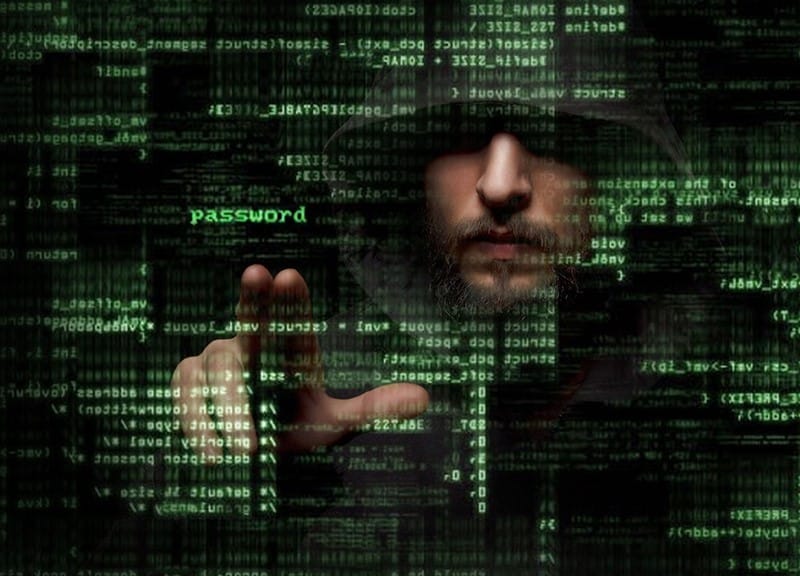The U.S. Justice Department prosecutes computer crimes, more commonly known as cybercrime, under three different sections of federal law.
First, there is the Computer Fraud and Abuse Act of 1986 (CFAA), codified in 18 U.S.C. Sec. 1030, covers nine different offenses whose maximum statutory penalties range from one year to life imprisonment. These offenses and maximum penalties include:
- Obtaining National Security Information: 10 years for first offense, 20 years second offense;
- Accessing a Computer and Obtaining Information: 1 or 5 years for first offenses, 10 years second offense;
- Trespassing in a Government Computer: 1 year for first offense; 10 years second offense;
- Accessing a Computer to Defraud & Obtain Value: 5 years for first offense, 10 years second offense;
- Intentionally Damaging by Knowing Transmission: 1 or 10 years for first offense, 20 years second offense;
- Recklessly damaging by Intentional Access: 1 or 5 years for first offense, 20 years second offense;
- Negligently Causing Damage & Loss by Intentional Access: 1 year for first offense, 10 years for second offense;
- Trafficking in Passwords: 1 year for first offense, 10 years second offense; and
- Extortion Involving Computers: 5 years for first offense, 10 years for second offense.
Second, the Wiretap Act, also known as “Title III,” involves the use of wiretaps while investigating crime. This Act prohibits “any person,” including a law enforcement officer, from making an illegal interception or disclosing or using illegally intercepted material. This Act covers three different offenses codified in 18 U.S.C. Sec. 2511:
- Intercepting Communications
- Disclosing an Intercepted Communication
- Using an Intercepted Communication
A violation of the Wiretap Act is a Class D felony. The maximum authorized penalty for a violation of this Act is a term of imprisonment of not more than five years and a fine under Title 18. Authorized fines are typically not more than $250,000 for individuals and $500,000 for an organization, unless there is a substantial loss.
Third, is a catchall of what is known as other Network Crime Statutes. These statutes all have their own penalties and fines depending upon the circumstances under which the offense is committed
- Unlawful Access to Stored Communications: 18 U.S.C. Sec. 2701
- Identity Theft: 18 U.S.C. Sec. 1028
- Aggravated Identity Theft: 18 U.S.C. Sec. 1028A
- Access Device Fraud: 18 U.S.C. Sec. 1029
- CAN-SPAM Act: 18 U.S.C. Sec. 1037
- Wire Fraud: 18 U.S.C. Sec. 1343
- Communications Interference: 18 U.S.C. Sec. 1362
The Dawn of Computers in the Criminal World
Computers have not only made things easier, they’ve also transformed how we communicate and do business. Because they are such a staple in modern society, it shouldn’t come as a shock to know how often computers are used to commit crimes.
With the speed at which computers spread through our society and their myriad capabilities, it took some time to develop new laws to keep up with the different types of crimes. Cyber crimes are criminal offenses committed through the internet or through various types of computer technology, and can cover a wide range of offenses such as identity theft, computer hacking, spreading malware, using a computer to defraud, child pornography, and more.
Depending on the scope and reasons for the cyber attack, some can potentially be capital offenses. A capital offense is a crime that is treated so seriously that death may be considered an appropriate punishment.
Usually, capital offenses tend to cover different forms of murders. In the case of computers, a capital offense would have to be related to espionage, treason, cyber terrorism, or cyber warfare.
Capital Cyber Crimes
Espionage or cyber spying is the act of getting secrets without the permission or authorization of whomever has that information – whether it’s sensitive, classified, or personal. This information can be obtained from individuals, groups, competitors, governments, or enemies for personal, political, economic, or military gain using computers, computer networks, or the internet by using hacking techniques or viruses and malware.
Cyber spying usually involves using computers to access secrets and classified information or controlling individual computers or whole computer networks for a deliberate advantage and for political, psychological, and physical rebellion activities and sabotage. Recently, cyber spies use social networking sites like Facebook and Twitter to analyze public activity.
Treason is the act of betraying your country. If you use a computer to commit treason, it could fall under a capital cyber crime. The laws on “cyber treason” are still being defined and developed.
In the recent case of NSA whistleblower Edward Snowden, many people argued he committed an act of treason against the United States by disclosing numerous intelligence files. According to Snowden, he carefully “evaluated every single document [he] disclosed to ensure that each was legitimately in the public interest.”
Article 3, Section 3 of the Constitution expands upon treason and it explicitly states,
“Treason against the United States, shall consist only in levying War against them, or in adhering to their Enemies, giving them Aid and Comfort.” According to the Constitution, unless the acts – committed with or without the use of a computer – actively waged war against the United States or an individual state or provided aid to enemies waging war against the United States, it cannot be treason.
Cyber terrorism is the politically motivated use of computers and information technology to cause widespread fear or severe disruption throughout society. It can include acts of intentional, large-scale disruption of computer networks and personal computers through the use of computer viruses and malware.
Another definition of cyber terrorism is the intentional use of computers, computer networks, and the internet to cause harm and destruction for personal reasons that could be either political or ideological.
There is still debate as to how narrow the scope of cyber terrorism is. Cyber terrorism can easily overlap with cyber war, cyber crimes, and regular terrorism.
Cyber warfare is defined as actions by a nation-state to infiltrate another nation’s computers or computer networks for the purposes of causing disturbance or damage. Other definitions expand that definition to include non-state actors like terrorist groups, companies, ideological or political extremist groups, hacktivists, and international crime organizations.
Cyber warfare could include cyber spying, sabotage, denial-of-service attacks, or attempts to hack the electrical power grid. Different countries have attempted to come up with laws and rules of what is and isn’t acceptable, but they have yet to be widely accepted.
A computer crime can cover any crime that targets a computer or a situation where someone uses a computer to commit a crime. Computer crime laws can be different for each state. So when a person commits a computer crime, that crime may be breaking several state laws and even federal laws.
Here are some other common computer crimes:
Unlawful access or use of a computer. It is a crime to access or use someone else’s computer without authorization or permission. This law is usually used during computer hacking offenses.
Access with intent to defraud. It is a crime to use a computer to receive any goods or services fraudulently.
Data theft. Whether you have permission to use someone else’s computer or not, it is a crime to access, copy, alter, or damage any information or data that you don’t have permission to use.
Child pornography. It is illegal in all 50 states and under federal laws to create, possess, or distribute images of child pornography.
If you are accused of any kind of cyber crime – contact an experienced cyber crime attorney immediately. As pointed out above, cybercrimes carry serious penalties, including in some rare instances the death penalty. A skilled attorney with a proven track record will be able to explain the charges against you and fight for your rights.






